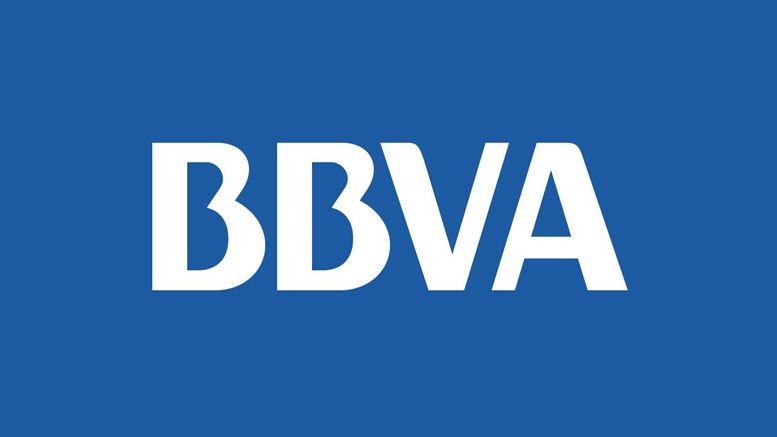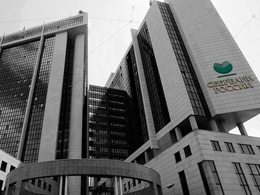
Bank’s economists: Blockchain technology poised to be financial industry’s biggest disruptor yet
Blockchain technology, which underpins the digital currency bitcoin, is receiving significant capital investment from banks thanks to its potential to be the ultimate disruptor in today's financial system, according to the latest reportissued by BBVA Compass economists.
Blockchain technology first became part of the public conversation via bitcoin, the peer-to-peer electronic currency system that runs without government backing. It provides the underlying mechanics that allow the digital currency to exist. The bank's economists say that while interest in bitcoin has evened out, blockchain is drawing more attention because of its ability to safely conduct transactions with no middleman and its potential for applications beyond purely digital currency transactions.
"A technology that has the ability to conduct and verify transactions via an immutable, time-stamped record that is replicated on servers across the globe has immense implications for the banking sector," said BBVA Compass Chief Economist Nathaniel Karp.
"We're talking about a massive overhaul of the banking industry's processes and a significant reduction in costs."
Blockchain is effectively a high-tech public ledger, or a book of recorded transactions, maintained by a community-agreed, distributed network of computers. It requires no central authority or third-party intermediaries. Blockchain has three key components: a transaction, a transaction record and a system that verifies and stores the transaction. It operates similarly to how a bank tracks the money in each of its accounts, but the technology is entirely transparent and distributed widely.
Each time a transaction takes place, "blocks" are generated by a network of computers that records the information about when and in what sequence the transaction took place. Every block chronologically stores information for all the transactions that have taken place in the chain, thus the name blockchain. Transactions are broadcast to a network of computers known as "miners," which gather together blocks of transactions. The blocks are secured by cryptography and the miners then compete to authenticate the transaction. The chain with the greatest sum of completed work wins and miners in this chain are compensated for their work. New protocols that rely on a consensus process that do not involve miners or proof of work are also gaining ground.
These open-source based systems make it tamperproof for any one party. For a blockchain to be altered, one would need to control more than one half of the computing resources on the network over a long period of time.
The first applications for blockchain technology in the financial industry would be in basic transactions within the payments space like purchasing foreign currency or international money remittances, where transactions currently require an intermediary like a clearing house or a financial institution. Blockchain technology could help eliminate the bank's need for costly infrastructure, allowing it to bypass payment networks that are often slow, cumbersome and expensive.
"The key question is not how, but when the disruption will become far-reaching," Karp wrote. "Blockchain technology could reshape the financial industry well beyond the payments system; it has the potential to change the face of modern finance."
Beyond the financial services industry, others are experimenting with blockchain technology for improving audits, registering property, creating digital identities and generating more secure voting systems.
Led by Karp, the bank's research team analyzes the U.S. economy and Federal Reserve monetary policy. For its analyses, the economists create models and forecasts for growth, inflation, monetary policy and industries. The economic research team also follows a variety of issues that affect the Sunbelt states where BBVA Compass operates.
About BBVA Group
BBVA Compass is a subsidiary of BBVA Compass Bancshares Inc., a wholly owned subsidiary of BBVA (NYSE: BBVA) (MAD: BBVA). BBVA is a customer-centric global financial services group founded in 1857. The Group has a solid position in Spain, is the largest financial institution in Mexico and has leading franchises in South America and the Sunbelt region of the United States. Its diversified business is geared toward high-growth markets and relies on technology as a key sustainable competitive advantage. Corporate responsibility is at the core of its business model. BBVA fosters financial education and inclusion, and supports scientific research and culture. It operates with the highest integrity, a long-term vision and applies the best practices. The Group is present in the main sustainability indexes.
More information about the BBVA Group can be found at: http://www.bbva.com/
About BBVA Compass
BBVA Compass is a Sunbelt-based financial institution that operates 672 branches, including 341 in Texas, 89 in Alabama, 77 in Arizona, 62 in California, 45 in Florida, 38 in Colorado and 20 in New Mexico, and commercial and private client offices throughout the U.S. BBVA Compass ranks among the top 25 largest U.S. commercial banks based on deposit market share and ranks among the largest banks in Alabama (2nd), Texas (4th) and Arizona (5th). BBVA Compass has been recognized as one of the leading small business lenders by the Small Business Administration, and its mobile app recently earned the Mobile Banking Leader in Functionality Award for the second consecutive year from Javelin Strategy & Research.
Additional information about BBVA Compass can be found at http://www.bbvacompass.com/, by following @BBVACompassNews on Twitter or visiting http://newsroom.bbvacompass.com/
Related News





